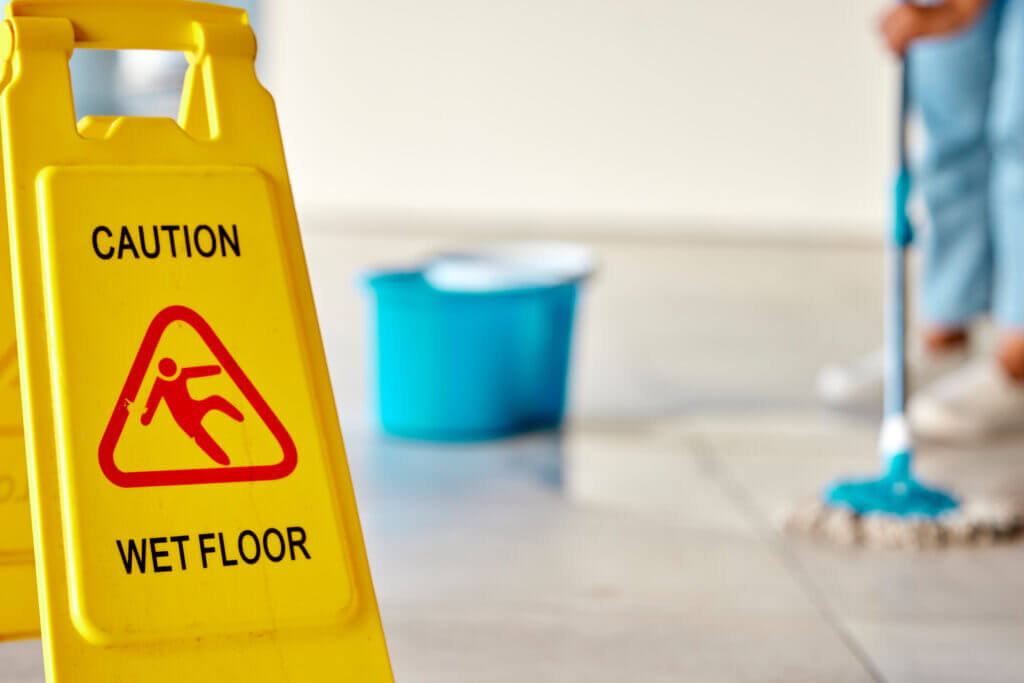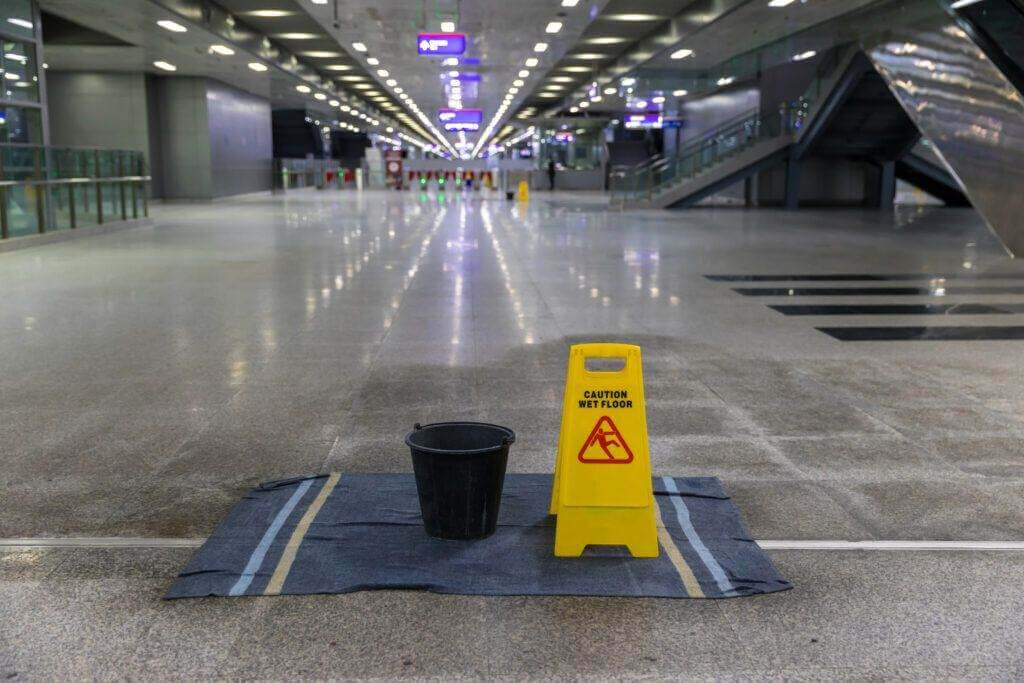Georgia Slip and Fall Attorneys

How a Georgia Slip & Fall Attorney Can Help You
Property owners have a legal duty to keep visitors and guests safe on their premises, but victims can suffer devastating injuries if property owners don’t take the proper precautions.
Fortunately, Georgia laws on premises liability allows you to recover compensation for your losses.
Our slip and fall and premises liability attorneys at Blasingame, Burch, Garrard & Ashley, P.C. can help you navigate the complicated claims process and laws governing these cases.
We offer free consultations and there’s no fee unless we recover money for you in your case. BBGA has offices in Athens and Lake Oconee, and we handle cases across the state of Georgia. Please contact our office at (706) 354-4000 or reach us online to obtain more information, and review our answers to some of the common questions victims ask about premises liability claims.
- How a Georgia Slip & Fall Attorney Can Help You
- Does Georgia Law Cover Slip and Fall Cases?
- Who May Be Liable in a Slip and Fall Case?
- What Compensation Can I Recover in a Georgia Slip and Fall Case?
- Should I Talk to an Insurance Company Representative?
- How do Slip and Fall Cases Occur?
- What are the Time Limitations on Filing a Slip and Fall Claim?
- Do I Need to Hire a GA Slip and Fall Lawyer?
- Consult with a GA Slip & Fall Attorney Today
Does Georgia Law Cover Slip and Fall Cases?
Yes, the Official Code of Georgia imposes liability upon an owner or occupier of land where a person suffers injuries due to the failure of the property owner keeping the premises safe for others. Slip and fall incidents are a type of premises liability case, but there are many other types of accidents that can occur due to hazardous conditions on the property.
These claims are based upon negligence, so you must show that:
- The property owner had a duty to maintain the property in reasonably safe condition
- That person breached this duty
- The breach of duty resulted in a dangerous condition that caused your injuries
- You suffered losses from your injuries, for which you are entitled to compensation
Who May Be Liable in a Slip and Fall Case?
There are multiple parties that could potentially be held responsible in a premises liability case. Though the statute refers to the actual legal owner or occupier, Georgia law imposes a duty of care upon any person or entity that has control over the property.
Therefore, other possible parties in a Georgia premises liability case may include:
- The tenant, such as a restaurant or store owner that leases the space
- A property manager, where the legal owner of the premises hires a third-party to manage it
- A homeowners’ or condominium owners’ association
- A company hired to handle security upon the premises
- Other entities depending upon the circumstances
These entities can be broken down into three categories: residential property owners, commercial property owners, and governmental property owners.
Residential Property
Homeowners and landlords might be responsible for injuries that occur on the property.
Here are a few examples of slip and fall negligence on residential properties:
- If defective construction caused your accident, the landlord could be responsible for your injuries. A landlord is also responsible for injuries that result from the landlord’s failure to repair the property.
- A landowner might be responsible for your injuries if the owner knew about a hazard on the property that was not obvious to others, such as a hole in the yard covered by long grass.
- If you slipped and fell on a cracked, uneven, or obstructed walkway, you might be able to seek compensation from the landowner for your injuries.
- A landowner could be responsible for injuries caused because there was no lighting or there was inadequate lighting.
Commercial Property
To bring a claim against a business, such as a grocery store or a restaurant, you first must lawfully be on the premises. Lawfully on the premises means you were not trespassing or returning to the business outside of business hours. It is also trespassing to enter areas that are closed to customers, like storage areas and employee break rooms.

Businesses may be liable for premises liability injuries if the owner or an employee:
- Caused dangerous conditions
- Knew of dangerous conditions but did not rectify it
- Should have known about dangerous conditions but failed to take reasonable steps to discover and repair the dangerous condition
For example:
- A business owner might be responsible for injuries caused when an employee spills food, water, or a cleaning product where customers walk and does not clean the spill
- If a business owner does not repair damaged stairs, ramps, floor tiles, or carpet, the business could be responsible for injuries caused by those conditions
- Businesses may be responsible for injuries caused by equipment, merchandise, or trash left in aisles or other areas where customers walk
Government Property
It’s complicated to sue a government agency or employee. In Georgia, you typically cannot sue government agencies or government employees.
However, the Georgia legislature can waive this immunity. For example, the Georgia Tort Claims Act allows you to sue the government for its employees’ actions.
Whether you can sue a Georgia government entity, and how to initiate the claim, depends on the rules of that county, city, or town.
Often, the process of filing a claim against a government agency or employee is different and more complex than filing a claim against a landowner or a business. We can help.
What Compensation Can I Recover in a Georgia Slip and Fall Case?
Your compensation in a premises liability claim is based upon the legal concept of damages, which is the monetary amount intended to reimburse you for your losses.
There are three types of damages in a Georgia slip and fall case:
- Economic damages, such as costs of medical treatment and lost wages if you cannot work because of your injuries
- Non-economic damages, which include pain and suffering, emotional distress, and diminished quality of life
- Punitive damages, that are only available in certain, very egregious cases. The intent of this type of damages is to punish the property owner for willful, wanton, malice, or otherwise offensive conduct, which is why they are synonymous with “vindictive” damages. Punitive damages also serve as an incentive to other owners and occupiers, so they do not engage in the same level of misconduct. Special types of proof and court procedures are involved with punitive damages
Should I Talk to an Insurance Company Representative?
Because property owners tend to carry insurance for the premises, the party you would file a claim with is the insurance company. Outside of notifying an agent that you have a claim, you should not engage in further conversation with the other party’s insurance company. Insurance companies are reluctant to pay out claims to injured victims because it hurts their profits. Therefore, representatives will try to find reasons to offer you a low settlement amount, or may even deny your claim entirely.
Insurers use a number of justifications to refuse to pay, such as contesting the nature or severity of your slip and fall injuries. The agents may also dispute fault on behalf of the property owner or occupier, saying there was no negligent conduct or that you are to blame for the accident that caused your injuries.
How do Slip and Fall Cases Occur?
Every slip and fall case is different, but there are some common scenarios on how premises-based accidents happen:
- Uneven, or cracked surfaces, sidewalks, or driveways
- Unsteady railings on stairways
- Inadequate lighting or failure to provide lighting in dark spaces
- Wet or slippery surfaces, due to spills or dripping
- Trip hazards caused by unsecured flooring, mats, or rugs
- Debris, inventory, or equipment blocking aisles or exits
- Stray wiring around computer equipment and electrical outlets
- Failure to comply with obligations regarding ice removal
- Building code violations
- Many other unsafe conditions
What are the Time Limitations on Filing a Slip and Fall Claim?
Georgia’s statute of limitations requires you to file a lawsuit for an injury-causing accident within two years after the incident occurred. There are limited exceptions to this time restriction, so it is important to avoid delays. Besides the statute of limitations, there are additional reasons to take quick action after you’ve been injured. Physical evidence may deteriorate over time, as do witness recollections of what happened in your premises liability case.
Are There Any Other Limitations on a Slip and Fall Case?
Georgia has enacted a statute regarding comparative fault, which could impact your compensation in a premises liability case. If your own actions contributed to the accident, your compensation will be reduced by the percentage of fault linked to your conduct. The statute establishes a modified version of comparative fault, which means if you are 50 percent or more blameworthy, you cannot recover any damages for your injuries.
Do I Need to Hire a GA Slip and Fall Lawyer?
There is no legal requirement that you retain an attorney to represent you in a premises liability case, but there are numerous advantages in doing so.
Our Georgia slip and fall injury lawyers at Blasingame, Burch, Garrard & Ashley, P.C. can assist with the following:
- Investigating, collecting evidence, and preparing a strategy to pursue your claim
- Negotiating a settlement with insurance agents, who will try to fight your claim and infringe upon your right to compensation
- Filing a lawsuit on your behalf in court if settlement negotiations break down and the insurance company is unwilling to pay the amount of compensation you deserve under the law
- Other areas of legal support you may need depending on the circumstances of your case
Consult with a GA Slip & Fall Attorney Today
For more information about premises liability or to schedule a free case assessment, please call (706) 354-4000 or send an online message today to reach the office of Blasingame, Burch, Garrard & Ashley, P.C. There is no fee unless we recover money for you in your case.
—
